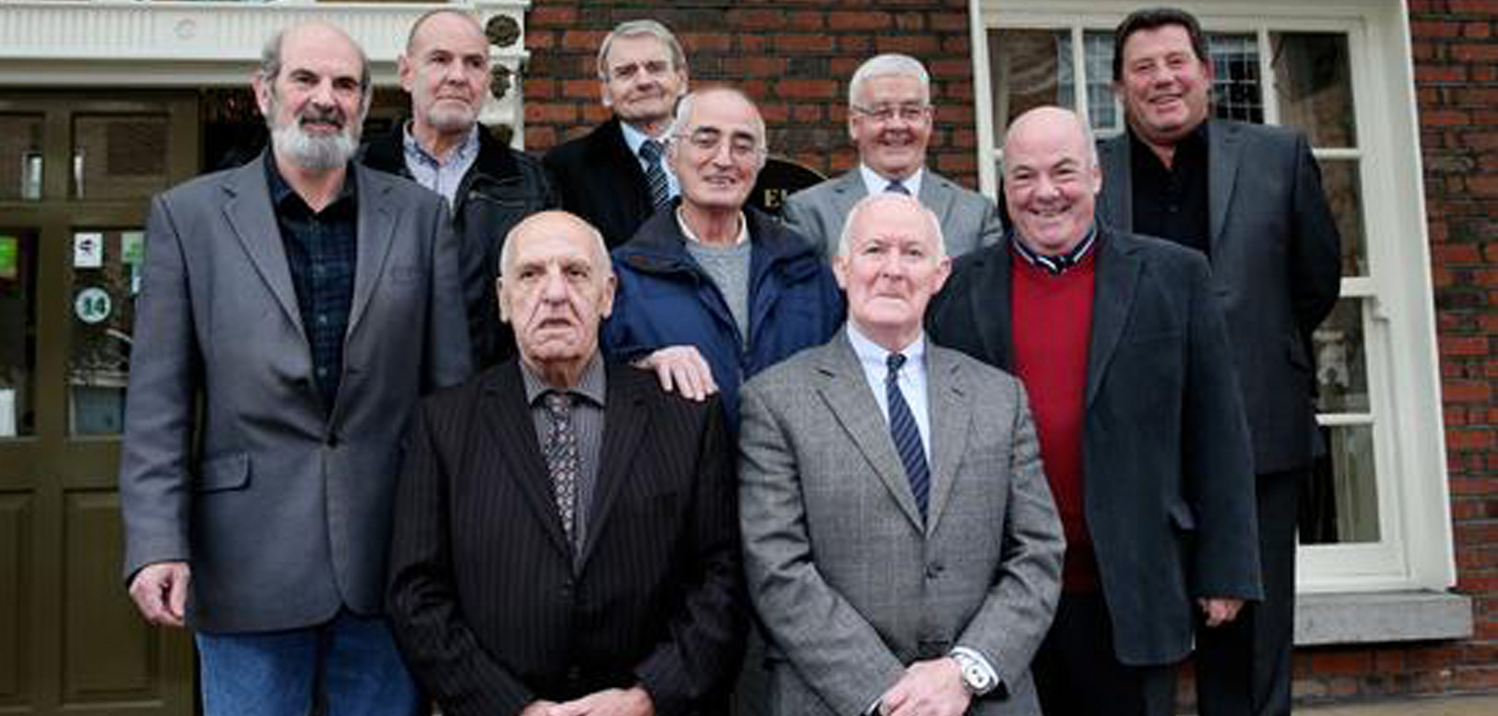The Human Rights Court has issued a new judgment on one of its landmark cases, but some have said they’ve missed an important opportunity “to put right a historic wrong”.
This story goes a long way back. More precisely, it began almost a half-century ago, during the worst part of ‘the Troubles‘.
During the course of three decades (1968-1998) a conflict on the constitutional status of Northern Ireland caused violence all over the UK – more than 3,600 people were killed and thousands more injured.
The situation was especially tense during the first half of the 1970s, when more than 3,000 people were arrested, interned – that is, detained without a fair trial or even an hearing – and interrogated by British security forces on grounds of being suspected of involvement with the Irish Republican Army (IRA).
This is the basis of what has become known as the ‘hooded men’ case.
The Five Techniques, And So On…
Francie McGuigan, one of the hooded men, calls on Govt to appeal European Court of Human Rights ruling on torture pic.twitter.com/Hg9WGkCA21
— RTÉ News (@rtenews) March 20, 2018
Video Credit: RTÉ News / Twitter
At the peak period of the Troubles, a group of ‘high value’ prisoners were subjected to ‘deep interrogation’ – which means they were exposed to treatments aimed at causing intense physical and psychological pain. The idea was to coerce them into confessing, despite the overwhelming evidence that intelligence obtained by torture has no value whatsoever.
Amongst the deep interrogation methods employed by the British, ‘five techniques‘ in particular stood out: deprivation of sleep, deprivation of food and drink, stress positions, hooding and subjection to ‘white noise’. The men also claimed they were beaten.
We are far, far, far from giving up. While any of us have any breath left in our bodies we will fight it and we will keep on fighting it.
Francie McGuigan, One of the Hooded Men
None of the ‘Hooded Men’ – as they came to be known – was ever charged with any crime. When they were finally released, they brought charges of torture against the UK. Their case went all the way up to the Human Rights Court, which had to decide whether the five techniques amounted to ‘torture’ or ‘degrading and inhuman treatment’ contrary to Article 3 of the Human Rights Convention.
In 1978, the Court said that the five techniques, although amounting to ‘inhuman and degrading treatment’, did not amount to torture. The judgment greatly influenced the way we define ‘torture’ today – and is in fact considered a landmark case on the matter – but not necessarily for the better.
On the one hand, the Court clearly stated that ‘deep interrogation’ techniques were illegal under international human rights law. On the other hand, by arguing that torture is different to ‘inhuman and degrading treatment’ because of the ‘special stigma’ attached to torture, the Court effectively allowed States to define prisoner abuse as being ‘less than torture’.
The five techniques judgement arguably paved the way for the mainstreaming of ‘enhanced interrogation techniques’, which includes acts that cause intense physical and psychological pain, but don’t quite meet the criteria for torture (which is absolutely prohibited). It’s really no surprise that the five techniques judgement was quoted in the Torture Memos by the George W Bush administration to justify abuse perpetrated by the United States during the ‘War on Terror’.
Still Not Torture?

Image credit: Patrick Makhoul / Flickr
The Human Rights Court’s thinking on what amounts to torture has evolved significantly since its 1978 judgement on the Hooded Men case. Many scholars argued that if the Court was confronted with the same facts today it would say that the Five Techniques do amount to torture. But yesterday the Court was in fact confronted with the same – actually, more robust – facts and still held its previous position.
In 2014, the Irish government, backed by human rights organisations, asked the Court to revise their judgement to a finding of torture based on new information revealed in an RTÉ documentary called The Torture Files. The documentary revealed solid evidence of the physical and psychological pain caused by the ‘five techniques’, and that the highest levels of the UK Government knew this all along but still sanctioned the practice. It also included evidence of physical assaults and death threats, which the Court did not consider in its 1978 judgement.
Yet the new evidence was still not enough. Yesterday the Court said that the fact the UK Government knew at the time about the long-term effects of the ‘deep interrogation’ would not have decisively affected its reasoning back then. Thus, in the words of the Court, “legal certainty must prevail and the final judgment must stand”. In short, the Court chose a procedural route to avoid addressing the substantive issues. The judges ruled, by a vote of six to one, that the original judgment should still stand; the only judge who voted for a revision of the case was from Ireland.
The Court has missed a vital opportunity to put right a historic wrong.
Grainne Teggart, Amnesty Northern Ireland
The judgment has sparked great disappointment from victims and their advocates. Amnesty International has commented that “the Court has missed a vital opportunity to put right a historic wrong”.
Mind you: the Court is not saying the ‘five techniques’ are not torture. In fact, Grainne Teggart, Amnesty’s Northern Ireland campaigns manager, noted how we can remain confident that what was done to the Hooded Men would be called torture by the Court if the case were heard afresh today (in a new judgement rather than a revision request).
However, this does not change the fact that we are still not calling things by their own name. And that really is a shame.







